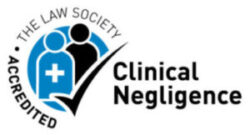A statistical report published by NHS England on the 21st of May 2015 indicates that the UK National Health Service is continually failing to meet government targets intended to streamline the process of initiating cancer treatment following an urgent GP referral.
The report’s opening paragraph acknowledges the importance of prompt treatment following a GPs referral of suspected cancer cases, stating that “shorter waiting times can help to ease patient anxiety and, at best, may lead to earlier diagnosis, quicker treatment, a lower risk of complications, an enhanced patient experience and improved cancer outcomes.” The obvious implications of this are that delays in cancer treatment, particularly when it follows delayed cancer diagnosis, could cost hundreds of thousands of lives every year, and in some cases amount to clinical negligence on the part of the medical professionals involved.
Despite this, the document goes on to outline numerous fields in which targets of initiating treatment for at least 85% of victims within 62 days of a GP referral are being missed, not just in isolated quarters but for the entire duration (1 financial year) of the report’s 2014-2015 analysis. With an average of just 83.4% of patients being seen within the designated time frame, it’s thought around 21,000 individuals were failed by the system, potentially exposing them to the serious risks associated with delayed cancer treatment.
In a year that Sara Hiom, the director of early diagnosis at Cancer Research UK labelled the “worst since record began in 2009”, the individual breakdowns for different manifestations of cancer paint a dubious picture:
- Proportion of breast cancer patients seen on time – 96.2%
- Proportion of Lung cancer patients seen on time – 75.1%
- Proportion of Lower gastrointestinal cancer patients seen on time – 71.9%
- Proportion of urological cancer patients seen on time – 75.9%
- Proportion of skin cancer patients seen on time – 94.9%
Despite meeting overall targets relating to the referral of suspected breast cancer patients for example, 21 of the NHS’s trusts still failed in their own jurisdictions, and in one particular area a mere 54% of patients were able to see a specialist. The Macmillan Foundation’s analysis of the report indicates that overall 109 hospital trusts did not reach the 62 day target for lower gastrointestinal cancers, with a further 100 failing in relation to urological cancers and 96 in relation to lung cancers.
Declining to comment on individual figures, the Department of Health attempted to reassure patients by insisting that cancer survival rates are higher than they have ever been. Commenting on the report Sean Duffy, NHS England’s national clinical director for cancer, added: “The NHS is helping more people survive cancer than ever before…’Against a backdrop of continued failure to meet targets however, this is unlikely to offer much comfort to those who, under the current government, have seen a string of broken promises relating to cancer care.
In a closing statement, Sean Duffy went on to emphasis once more the importance of a swift diagnosis when it comes to any or all forms of cancer. This should be the bottom line in all discussions relating to the NHS’s missed targets, and is why those who have suffered unnecessarily because of a delayed diagnosis and / or treatment may have the right to seek out cancer treatment delay compensation.
With one of the UK’s leading personal injury legal teams, Blackwater Law are well placed to provide those who may have experienced clinical negligence in relation to a delayed diagnosis of cancer with advice and support, and where appropriate could help to secure financial compensation. Call today on 0800 083 5500, and speak to a specialist clinical negligence solicitor who could help you secure the cancer treatment compensation you deserve.





